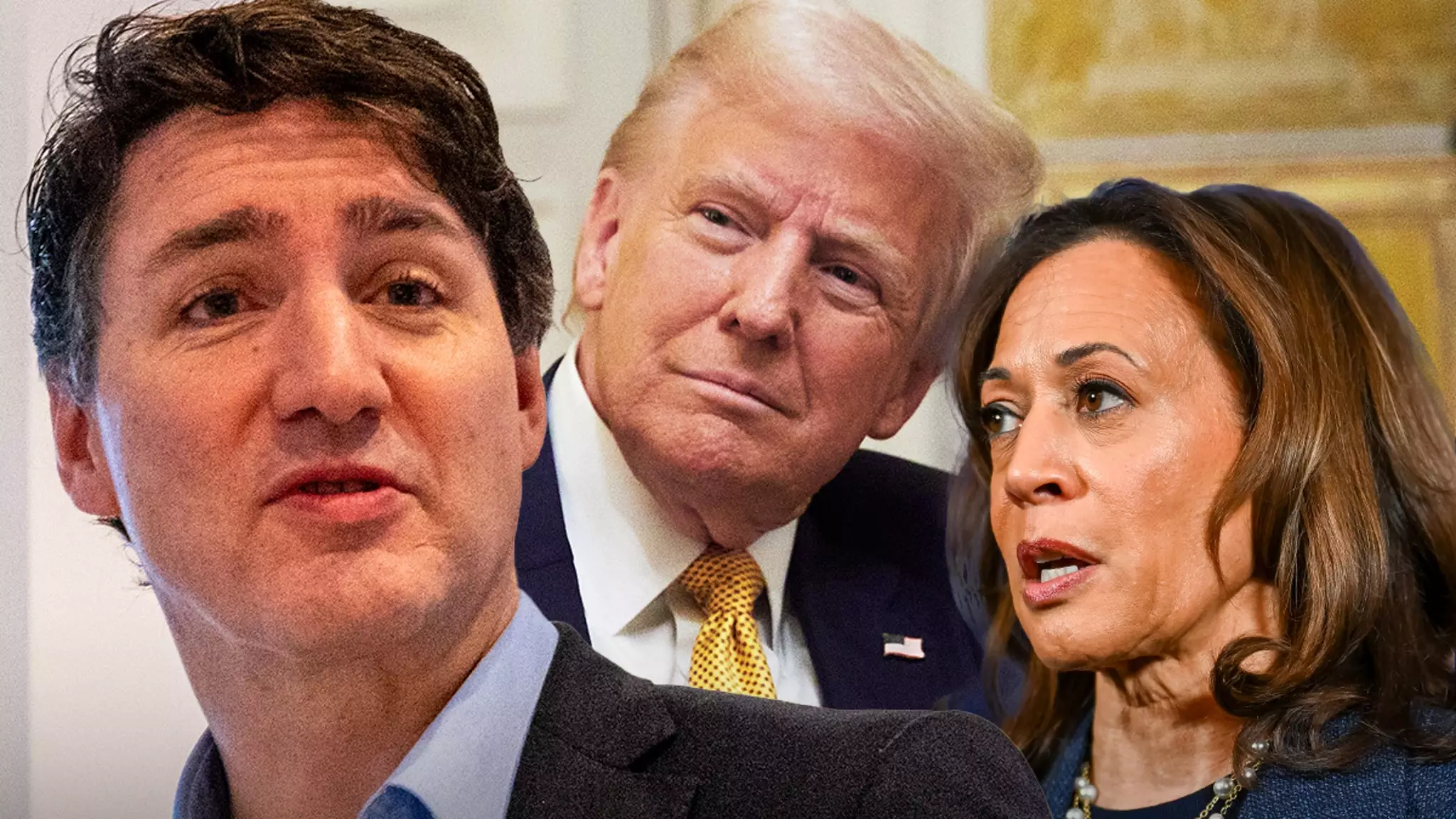Canadian Prime Minister Justin Trudeau recently made headlines by criticizing the American political landscape regarding its impact on women’s rights, specifically highlighting the recent election of Donald Trump. Positioned at an event for the Equal Voice Foundation, which champions gender representation in politics, Trudeau’s commentary not only underscored his self-identification as a feminist but also served as a pointed critique of the progress—or lack thereof—pertaining to women’s rights in the United States. While his intentions may have been noble, one must consider whether this form of advocacy genuinely contributes to the feminist movement or serves more as a political maneuver.
Trudeau’s assertion that Kamala Harris would have fostered greater advancements for women compared to Trump is rooted in a historical perspective on women’s rights. Traditionally, female representation in politics has been limited, yet some progress has been made over decades. Trudeau’s perspective suggests that the election of a woman to a high-ranking office would signify a definitive step toward equality. However, it is vital to analyze this assumption critically. The fact that Trump garnered 45% of women’s votes in the most recent election illustrates the complexity of women’s political affiliations, challenging the notion that a female candidate automatically correlates with advancements in gender rights.
Trudeau’s criticism of Trump’s presidency can arguably be seen as an empathetic gesture toward women’s rights, yet it raises questions about the effectiveness of such political rhetoric. While highlighting the perceived shortcomings of the American elections, Trudeau may inadvertently downplay the agency of women voters who supported Trump. Furthermore, does raising the profile of women in politics ensure systemic changes in favor of women’s rights, or is it merely symbolic? This intricate nuance begs examination, especially in a world where political emblemism can overshadow substantial reforms.
The underlying tone of Trudeau’s remarks also hints at a complex and often fraught relationship between the Canadian Prime Minister and the American President. Their interactions have been marked by contentious moments, from conspiracy theories regarding Trudeau’s parentage to perceptions of Canada as merely a “governor” under U.S. influence. This backdrop adds weight to Trudeau’s statements, suggesting that his critique is not only about women’s rights but also a reflection of the diplomatic challenges that lie ahead. Such a dynamic complicates the narrative and diminishes the potential impact of Trudeau’s feminist assertions.
While crude political commentary may grab headlines, genuine advocacy for women’s rights must transcend rhetoric. Trudeau’s critique of the U.S. political climate, while rooted in a desire for progress, risks simplifying the complexities surrounding female political participation and representation. For meaningful changes to occur, discussions must engage with the diverse perspectives of women across the political spectrum. Ultimately, it is not just about putting women in power but ensuring that their presence yields tangible outcomes that benefit all women.

